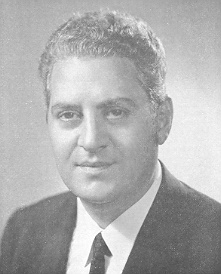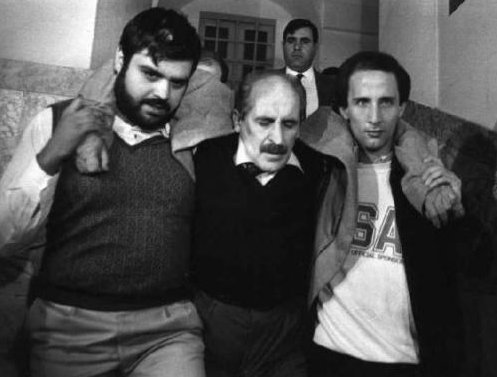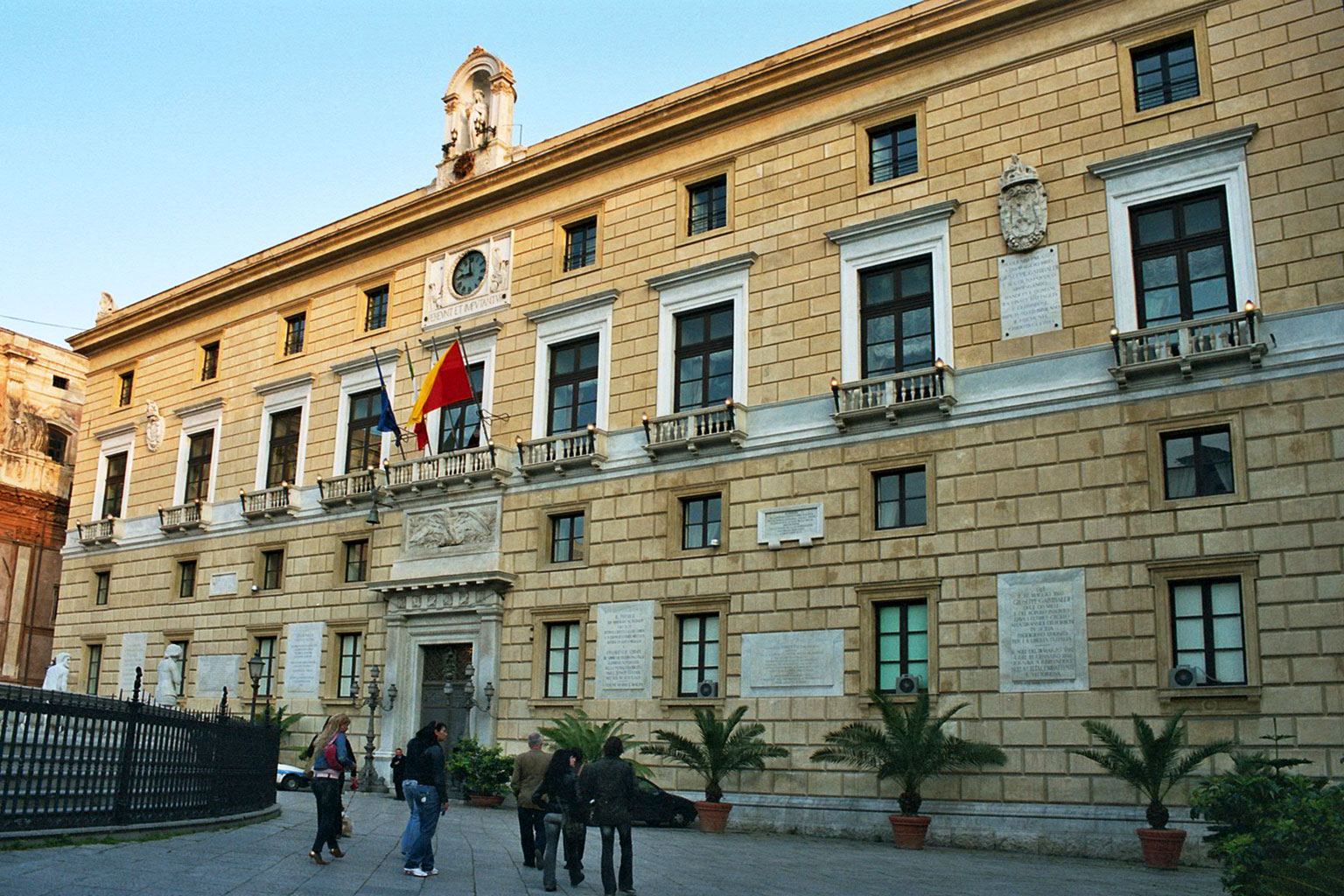|
Salvatore Lima
Salvatore Achille Ettore Lima (; 23 January 1928 – 12 March 1992) was an Italian politician from Sicily who was associated with, and murdered by, the Sicilian Mafia. He is often just referred to as Salvo Lima. According to the ''pentito'' (Mafia defector) Tommaso Buscetta, Lima’s father, Vincenzo Lima, was a member of the Mafia, but it is not known whether Lima himself was a "made member" of Cosa Nostra.Jamieson, ''The Antimafia'', p. 221Dickie, ''Cosa Nostra'', p. 285 In the final report of the first Italian Antimafia Commission (1963–1976) Lima was described as one of the pillars of Mafia power in Palermo. During his long career with the Christian Democracy (DC) that began in the 1950s, Lima was first allied with the faction of Amintore Fanfani and after 1964 with the one of Giulio Andreotti, seven times prime minister and a member of almost every post-war Italian government. That shift earned him a seat in the national parliament in 1968. Lima was often referre ... [...More Info...] [...Related Items...] OR: [Wikipedia] [Google] [Baidu] |
Member Of The European Parliament
A Member of the European Parliament (MEP) is a person who has been elected to serve as a popular representative in the European Parliament. When the European Parliament (then known as the Common Assembly of the ECSC) first met in 1952, its members were directly appointed by the governments of member states from among those already sitting in their own national parliaments. Since 1979, however, MEPs have been elected by direct universal suffrage. Earlier European organizations that were a precursor to the European Union did not have MEPs. Each member state establishes its own method for electing MEPs – and in some states this has changed over time – but the system chosen must be a form of proportional representation. Some member states elect their MEPs to represent a single national constituency; other states apportion seats to sub-national regions for election. They are sometimes referred to as delegates. They may also be known as observers when a new country is seekin ... [...More Info...] [...Related Items...] OR: [Wikipedia] [Google] [Baidu] |
Cosa Nostra
The Sicilian Mafia, also simply known as the Mafia and frequently referred to as Cosa nostra (, ; "our thing") by its members, is an Italian Mafia-terrorist-type organized crime syndicate and criminal society originating in the region of Sicily and dating to at least the 19th century. It is a loose association of criminal groups that share a common organisational structure and code of conduct and honor and present themselves to the public under a common brand. The basic group is known as a "family", "clan", or ''cosca''. Each family claims sovereignty over a territory, usually a town or village or a neighbourhood (''borgata'') of a larger city, in which it operates its rackets. Its members call themselves " men of honour", although the public often refers to them as ''mafiosi''. By the 20th century, following wide-scale emigration from Sicily, mafiosi established gangs in North and South America which replicate the traditions and methods of their Sicilian ancestors. The Mafia's co ... [...More Info...] [...Related Items...] OR: [Wikipedia] [Google] [Baidu] |
Ignazio Salvo
Ignazio () is a masculine Italian given name. Notable people with the name include: Arts *Ignazio Collino (1736–1793), Italian sculptor *Ignazio Fresu (born 1957), Italian sculptor *Ignazio Gardella (1905–1999), Italian architect and designer *Ignazio Hugford (1703–1777), Italian painter *Ignazio Marabitti (1719–1797), Sicilian sculptor *Ignazio Oliva (17th century), Italian painter *Carlo Ignazio Pozzi (1786–1842), Italian painter and architect *Ignazio Stern (1679–1748), Austrian painter Literature *Ignazio Buttitta (1899–1997), Sicilian dialectal poet *Ignazio Giorgi (1675–1737), Italian poet and translator *Ignazio Silone (1900–1978), Italian novelist and poet Music *Ignazio Albertini (1644–1685), Italian violinist and composer *Ignazio Cirri (1711–1787), Italian organist and composer *Ignazio Boschetto, Italian singer-songwriter & member of Il Volo *Ignazio Donati (1570–1638), Italian composer *Ignazio Fiorillo (1715–1787), Italian composer *Ignaz ... [...More Info...] [...Related Items...] OR: [Wikipedia] [Google] [Baidu] |
Antonio Salvo
Ignazio Salvo (; 1932 – September 17, 1992) and his cousin Nino Salvo (born Antonino Salvo ; July 14, 1929 – January 19, 1986) were two wealthy businessmen from the town of Salemi in the province of Trapani. They had strong political connections with the Christian Democrat party (DC - Democrazia Cristiana), in particular with the former mayor of Palermo, Salvo Lima, and Giulio Andreotti. At the Maxi Trial against the Mafia in the mid-1980s, they were convicted of association with Mafia members. Salvo Lima arranged an unusually lucrative concession to collect taxes in Sicily for the Salvo cousins island (tax collection was contracted out by the government), in exchange for their loyalty to Lima and the Andreotti faction of the DC. The Salvos were allowed 10 percent of the take – three times as much as the national average of 3.3 percent. Subsequently, the Salvos expanded their economic activity to many other areas such agribusiness (lavishly subsidised by the European Union and ... [...More Info...] [...Related Items...] OR: [Wikipedia] [Google] [Baidu] |
Sack Of Palermo
The Sack of Palermo is the popular term for the construction boom from the 1950s through the mid-1980s in Palermo, Italy, that led to the destruction of the city's green belt and historic villas to make way for characterless and shoddily-constructed apartment blocks. In the meantime, Palermo's historic centre, severely damaged by Allied bombing raids in 1943, was allowed to decay. The bombing condemned nearly 150,000 people to live in crowded slums, shantytowns, and even caves.Schneider & Schneider (2003). ''Reversible Destiny'', p. 14-19 Background Between 1951 and 1961, the population of Palermo had risen by 100,000, caused by a rapid urbanization of Sicily after World War II as land reform and mechanization of agriculture created a massive peasant exodus and rural landlords moved their investment into urban real estate. This led to an unregulated and undercapitalised construction boom from the 1950s through the mid-1980s that was characterised by the aggressive involvement ... [...More Info...] [...Related Items...] OR: [Wikipedia] [Google] [Baidu] |
Angelo La Barbera
Angelo La Barbera (; July 3, 1924 – October 28, 1975) was a powerful member of the Sicilian Mafia. Together with his brother Salvatore La Barbera he ruled the Mafia family of Palermo Centro. Salvatore La Barbera sat on the first Sicilian Mafia Commission that was set up in 1958 as the capo mandamento for Mafia families of Borgo Vecchio, Porta Nuova and Palermo Centro. Gaia Servadio, an English/Italian journalist who wrote a biography on Angelo La Barbera, described him as the symbol of the quick, clever gangster. The new post-war mafioso who in the end became the victim of the many politicians he himself had built. He represented the proletariat who tried to become mafioso, middle class, and ultimately did not succeed.Servadio, ''Mafioso'', p. 182-84 Mafia career Angelo and Salvatore La Barbera were born in the slums of the neighbourhood of Partanna-Mondello in Palermo. Their father was an itinerant charcoal burner and vendor. They started with petty larceny and murder and rais ... [...More Info...] [...Related Items...] OR: [Wikipedia] [Google] [Baidu] |
Francesco Vassallo
Francesco Vassallo a.k.a. don Ciccolo, don Frankie or King Concrete (born c. 1910) was an Italian entrepreneur that associated with Mafia in the 1950s. His son Giuseppe "Pino" Vassallo was kidnapped in 1971. References Further reading * * Italian businesspeople 1910s births Year of death missing {{Italy-business-bio-stub ... [...More Info...] [...Related Items...] OR: [Wikipedia] [Google] [Baidu] |
Vito Ciancimino
Vito Alfio Ciancimino (; 2 April 1924 – 19 November 2002) was an Italian politician close to the Mafia leadership who became known for enriching himself and his associates by corruptly granting planning permission. An abrasive personality, he served briefly as mayor of Palermo, Sicily as a Christian Democrat. Ciancimino was close to Mafia boss and perennial fugitive Bernardo Provenzano, but regarded Salvatore Riina as irrational. In the aftermath of Mafia bomb outrages in the 1990s, Ciancimino was contacted by Carabinieri Colonel Mario Mori, but the content of the discussions is disputed. Ciancimino is said to have alleged a list of demands from 'boss of bosses' Salvatore Riina. As his price for halting attacks was passed on, charges were brought against Mori, who maintained there had been no list, that his contacts with Ciancimino were aimed at combating the Mafia, and that he had disclosed little beyond implicitly admitting he knew Mafia members. Early career Ciancimino w ... [...More Info...] [...Related Items...] OR: [Wikipedia] [Google] [Baidu] |
Mayor Of Palermo
The mayor of Palermo is an elected politician who, along with the Palermo's city council, is accountable for the strategic government of Palermo in Sicily, Italy. The current mayor is Roberto Lagalla, who took office on 20 June 2022. Overview According to the Italian Constitution, the mayor of Palermo is a member of the Palermo city council. The mayor is elected by the population of Palermo. Citizens elect also the members of the city council, which also controls the mayor's policy guidelines and is able to enforce his resignation by a motion of no confidence. The mayor is entitled to appoint and release the members of his government. Since 1993 the mayor has been elected directly by Palermo's electorate: in all mayoral elections in Italy in cities with a population higher than 15,000 the voters express a direct choice for the mayor or an indirect choice voting for the party of the candidate's coalition. If no candidate receives at least 50% of votes, the top two candidates ... [...More Info...] [...Related Items...] OR: [Wikipedia] [Google] [Baidu] |
Elections
An election is a formal group decision-making process by which a population chooses an individual or multiple individuals to hold public office. Elections have been the usual mechanism by which modern representative democracy has operated since the 17th century. Elections may fill offices in the legislature, sometimes in the executive and judiciary, and for regional and local government. This process is also used in many other private and business organisations, from clubs to voluntary associations and corporations. The global use of elections as a tool for selecting representatives in modern representative democracies is in contrast with the practice in the democratic archetype, ancient Athens, where the elections were considered an oligarchic institution and most political offices were filled using sortition, also known as allotment, by which officeholders were chosen by lot. Electoral reform describes the process of introducing fair electoral systems where they are ... [...More Info...] [...Related Items...] OR: [Wikipedia] [Google] [Baidu] |
European Parliament
The European Parliament (EP) is one of the legislative bodies of the European Union and one of its seven institutions. Together with the Council of the European Union (known as the Council and informally as the Council of Ministers), it adopts European legislation, following a proposal by the European Commission. The Parliament is composed of 705 members (MEPs). It represents the second-largest democratic electorate in the world (after the Parliament of India), with an electorate of 375 million eligible voters in 2009. Since 1979, the Parliament has been directly elected every five years by the citizens of the European Union through universal suffrage. Voter turnout in parliamentary elections decreased each time after 1979 until 2019, when voter turnout increased by eight percentage points, and rose above 50% for the first time since 1994. The voting age is 18 in all EU member states except for Malta and Austria, where it is 16, and Greece, where it is 17. Although the E ... [...More Info...] [...Related Items...] OR: [Wikipedia] [Google] [Baidu] |
Proconsul
A proconsul was an official of ancient Rome who acted on behalf of a consul. A proconsul was typically a former consul. The term is also used in recent history for officials with delegated authority. In the Roman Republic, military command, or ''imperium'', could be exercised constitutionally only by a consul. There were two consuls at a time, each elected to a one-year term. They could not normally serve two terms in a row. If a military campaign was in progress at the end of a consul's term, the consul in command might have his command prorogued, allowing him to continue in command. This custom allowed for continuity of command despite the high turnover of consuls. In the Roman Empire, proconsul was a title held by a civil governor and did not imply military command. In modern times, various officials with notable delegated authority have been referred to as proconsuls. Studies of leadership typically divide leaders into policymakers and subordinate administrators. The proconsu ... [...More Info...] [...Related Items...] OR: [Wikipedia] [Google] [Baidu] |





